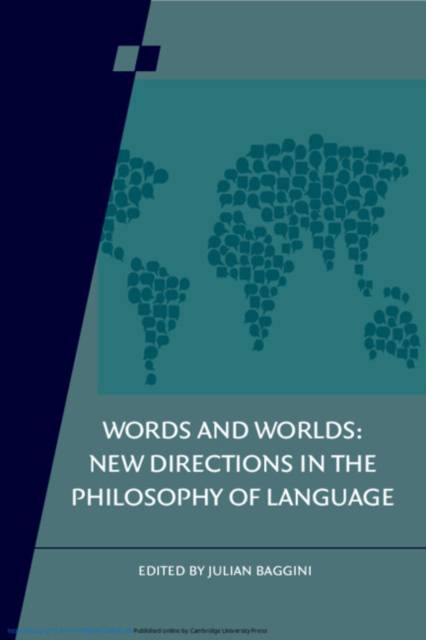
Bedankt voor het vertrouwen het afgelopen jaar! Om jou te bedanken bieden we GRATIS verzending (in België) aan op alles gedurende de hele maand januari.
- Afhalen na 1 uur in een winkel met voorraad
- In januari gratis thuislevering in België
- Ruim aanbod met 7 miljoen producten
Bedankt voor het vertrouwen het afgelopen jaar! Om jou te bedanken bieden we GRATIS verzending (in België) aan op alles gedurende de hele maand januari.
- Afhalen na 1 uur in een winkel met voorraad
- In januari gratis thuislevering in België
- Ruim aanbod met 7 miljoen producten
Zoeken
Words and Worlds: Volume 95
New Directions in the Philosophy of Language
€ 56,45
+ 112 punten
Omschrijving
The philosophy of language occupies a less central position in Anglophone philosophy than it did a generation ago. But, released from the burden of being 'first philosophy', it has taken off in a number of new directions: less formal, more focused on the realities of everyday linguistic exchange, more conscious of an 'analytic' approach as one among many and, especially, more socially and politically engaged. The papers collected in this volume exemplify these new directions, addressing topics such as joint deliberation, the role of communities of practice in shaping understanding, slurs, hate speech, (the impossibility of) conceptual engineering, and the place of stories in self-making. They also offer a new take on the traditional problem of aboutness and show how ancient Chinese philosophy challenges familiar assumptions about language and its philosophy.
Specificaties
Betrokkenen
- Uitgeverij:
Inhoud
- Aantal bladzijden:
- 208
- Taal:
- Engels
- Reeks:
Eigenschappen
- Productcode (EAN):
- 9781009544320
- Verschijningsdatum:
- 20/06/2024
- Uitvoering:
- Paperback
- Formaat:
- Trade paperback (VS)
- Afmetingen:
- 147 mm x 221 mm
- Gewicht:
- 294 g

Alleen bij Standaard Boekhandel
+ 112 punten op je klantenkaart van Standaard Boekhandel
Beoordelingen
We publiceren alleen reviews die voldoen aan de voorwaarden voor reviews. Bekijk onze voorwaarden voor reviews.








